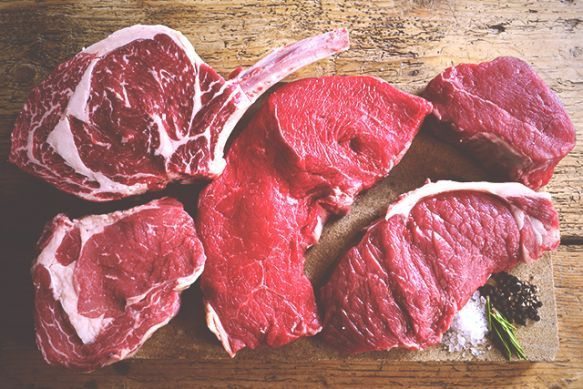
One of the biggest selling points of the Paleo diet is that it reduces the risk of diseases such as cancer because it involves strictly pure and unprocessed foods. The Paleo diet is heavy on meat, and thus Paleo dieters have a very high protein intake. However, a new study in the journal Cell Metabolism found that middle age adults who eat high amounts of protein are four times as likely to die of cancer than those who eat less or normal amounts of protein. This increased cancer risk is equivalent to the risk associated with smoking.
According to U.S. News & World Report, the average Paleo diet includes 38% of daily calories coming from protein. A University of Southern California study found that the minimum “high protein” diet likely to cause cancer in people between the ages of 50 and 63 includes just 20% of daily calories coming from protein. This comprehensive study involved over 6,000 participants over a period of 18 years. Valter Longo, who led the study at the University of Southern California, reports, “popular diets in many cases have high proteins and low sugars. They may make you lose some weight, but that’s not a good diet to increase life span.” In other words, the Paleo diet is probably not the best option if you want to optimize your life expectancy.
Perhaps the Paleo diet could be more well-received and healthful if it placed less emphasis on high levels of protein, especially coming from animal products, and more emphasis on non-processed vegetables, fruits, beans, and seeds. After all, researchers of Paleolithic peoples find diets composed of high levels of fresh fruits and vegetables in addition to meat-based protein.
What do you think about the Paleo diet?
For more on diet & nutrition, find our articles here.
All images via Take Part









![Daily Bite [Make]: Philly Cheesesteak Stuffed Bell Peppers](https://dashofwellness.com/wp-content/uploads/2013/01/Philly-Cheesesteak-Stuffed-Pepper-Daily-Bite-1-100x70.png)

Amazing post.